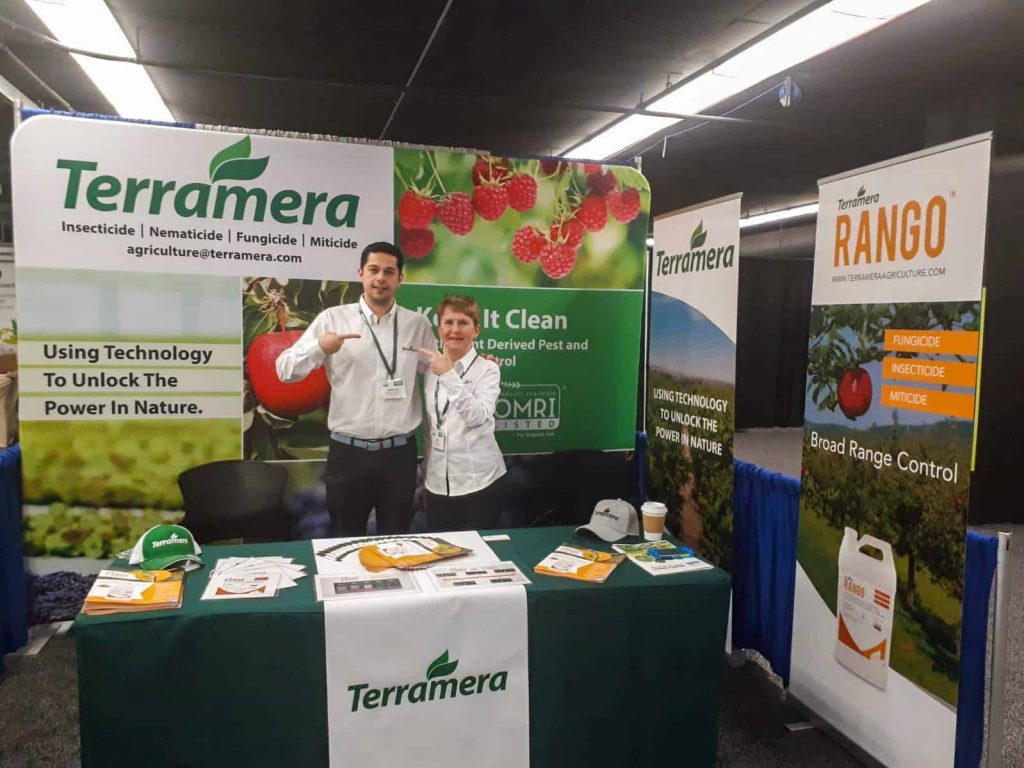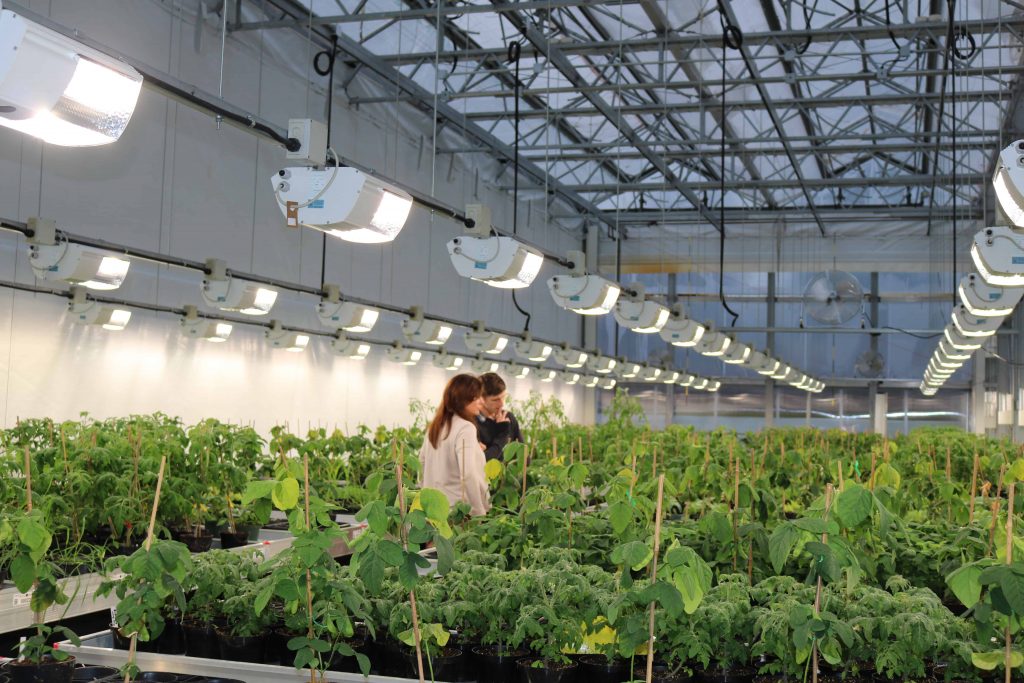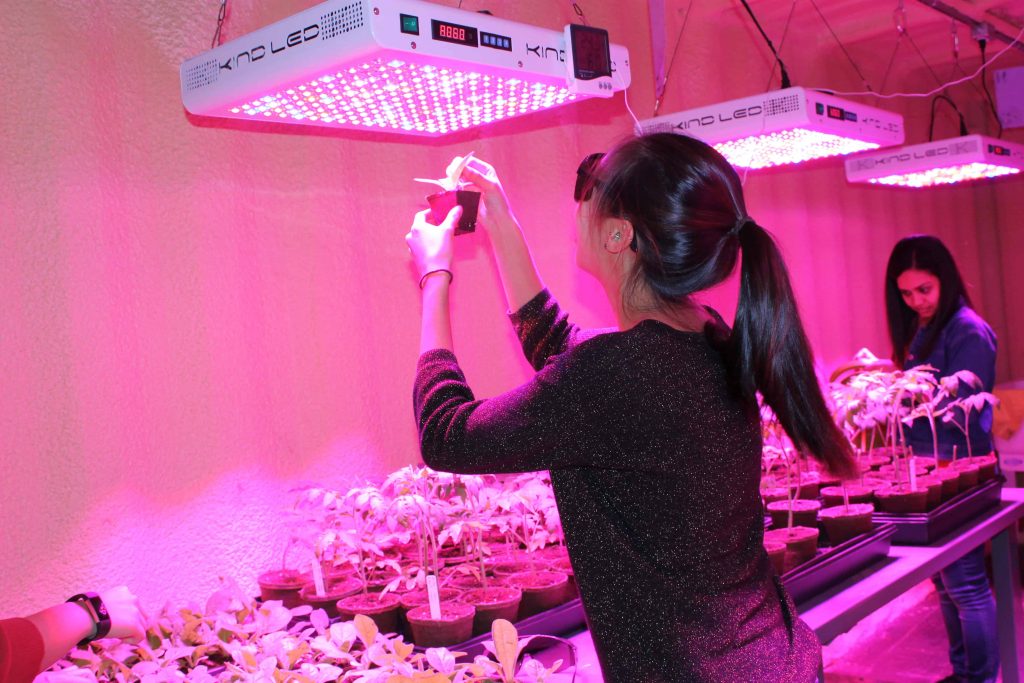Bearing that in mind, Manhas founded Terramera. His idea was as simple as it was bold: healthful, accessible food for everyone.
“We have these ‘big, hairy, audacious goals,’ which are, by the year 2030, to reduce the synthetic chemical load in agriculture by 80 percent, while also helping to increase yields and quality by at least 20 percent,” he explains, “which is enough of an increase in food production to feed at least another billion people.”
Agtech is the next wave of disruption
As radical as that may sound, it’s a goal that’s achievable. Terramera’s strategy for changing the food that’s on your table is backed by a practical, pragmatic approach to problem-solving that’s as multifaceted as its founder and CEO.
Manhas started Terramera, headquartered in Vancouver, in 2012. In keeping with those ‘audacious’ goals, the company’s mission is “to increase global yields while decreasing synthetic chemical loads in agriculture.” Essentially, Manhas wants to grow more food and lessen the use of synthetic pesticides and fertilizers — at the same time. But it’s the company’s coupling of tech disciplines, like artificial intelligence (AI) and machine learning, with green chemistry and plant biology that make Terramera unique in how it’s going about disrupting agriculture. This hybrid approach is best characterized as agtech.
An entrepreneurial trajectory comes to fruition
It’s an approach befitting Manhas himself, who’s worn many hats in his career. In college, he studied genetics. He had planned to pursue law school in New York after graduating but in the end felt compelled to remain in Vancouver to affect change closer to home. In 2001, he found himself the youngest person ever elected to the Legislative Assembly of British Columbia.
When his term as a public servant ended, and he made the decision to return to the private sector, Manhas enrolled in law school. It was there the proverbial seeds for Terramera were planted, but from a most unlikely source. Though its mission today is to conquer hunger, the company started out with a more modest goal, albeit a pressing one: to conquer bedbugs.
“Terramera started as an argument when I was in law school,” says Manhas.
Bedbugs, a classmate claimed, would arrive in droves as an unintended consequence if the 2010 Olympics were held in Vancouver. Numerous pests had been introduced to Australia during the Sydney Olympics in 2000, including bedbugs, which generated an epidemic. The classmate argued that if the Olympics came to Vancouver, chemical pesticide companies would be a smart investment.
“Both got my back up,” Manhas says. “As the conversation went on, he said one of the big problems is there’s nothing that works against these pests because they’ve got resistance to all of the synthetic chemicals that exist right now — which is true — and nothing natural can work.”
That, to Manhas, didn’t add up. “I said, ‘No. There is something in the natural world that’s going to have an effect on these pests. The key is, is there something that’s not toxic to humans and the environment?’” His classmate countered that if there were, one of the big chemical companies would’ve found it by now.
This argument started Manhas on a journey of research and testing in his basement, like many tech entrepreneurs, that eventually led him to found Terramera.
“Over tens of millions of years, plants have evolved some of the most sophisticated methods of being able to protect themselves naturally and thrive in all kinds of different environments. That really became the seed and crux of trying to understand why many of the natural and organic materials that we were using worked less effectively,” he says. But how did bedbugs lead to bigger things? The key was figuring out how to get around the bedbugs’ natural defenses. “Bedbugs are like little tanks,” Manhas says. What makes them so resistant to traditional pesticides is that they absorb so little. In his basement research and testing, Manhas identified neem, a plant product, as a potential bedbug deterrent, and more importantly, a formula for breaking through the bugs’ armor. Fast-forward to 2019, and that chemical formula has grown into Terramera’s Actigate™ Target Performance technology, a green technology that delivers any given treatment (organic or synthetic) more efficiently — and more specifically — to whatever its being used to treat, whether it’s a pesticide for bedbugs or a crop protection compound or fertilizer for plants. “Terramera started with trying to deconstruct why that was the case, and how we could apply science and technology to turn that around, so natural and organic materials could be much more effective — as effective or more effective [than synthetics] — and more scalable,” he says. Today, the company is on its way to bringing Actigate™ to farmers. Manhas notes that, as much as the plan is for Terramera’s products to help make organic agriculture more scalable, the benefits for conventional farming are clear. “We don’t want to be exclusionary,” he says. “[Organic agriculture makes up] only 5 million acres of farmland out of 900 million, so 99 percent of farming is conventional,” he says. “We want to make conventional farming cleaner as well, because that’s mostly what we interact with, while also helping make organic farming more economical.” As for how he plans to guide the company to those goals, and advice for fellow leaders, Manhas’s strategy can be summed up in one word: teamwork. “The biggest thing that is impactful for us as a company is setting these big goals, even if we don’t exactly know how we’re going to be able to achieve them today. But then bring in strong people you can trust, who see and have bought into those goals,” he says. “Build that team you can trust, set the goals, and then step back and let the team do their magic.” 
Unlocking the innate power of plants

Coming soon to your table




